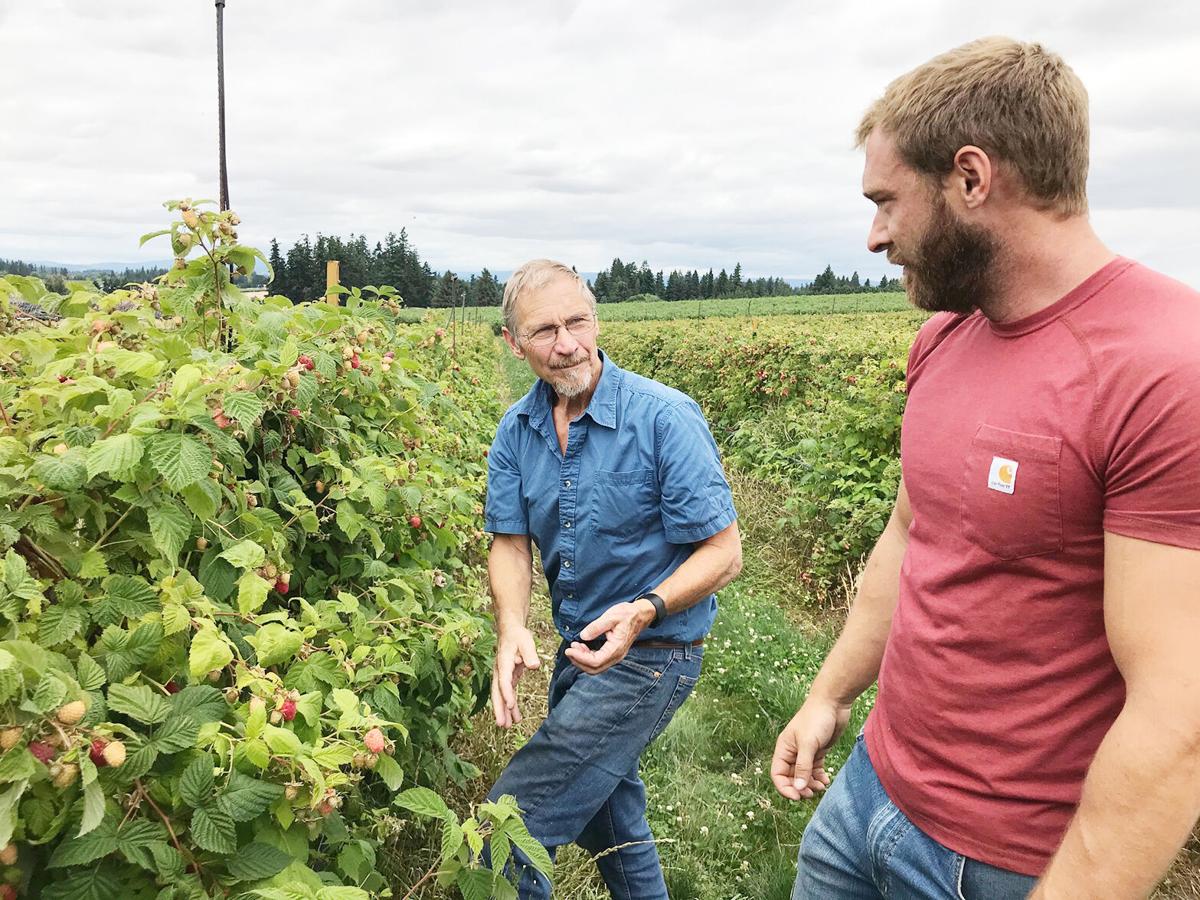This article was published on: 07/6/21 11:56 AM
Greg Unger and his father, Matt, leaned in to inspect a row of ripe raspberries at the family’s 160-acre farm in Cornelius, Ore., following a brutal heat wave that gripped the Willamette Valley in late June.
Red fruit was flecked with white, a sign of sunburning in the relentlessly hot weather. If not for an overhead misting system set up to keep the berries cool, it is possible the entire crop may have been destroyed.
“There’s only so much you can do in 115 degrees, but we did what we could,” Greg Unger said.
Unger Farms, about 25 miles west of Portland, grows fresh strawberries, raspberries, blackberries and blueberries that are sold at New Seasons grocery stores and local farmers markets around the metro area, as well as some U-pick.
Between severe drought and heat, 2021 is so far proving a painful year at the farm. Strawberry yields took an estimated 80% hit due to dry conditions in May, and early raspberry yields may be down by as much as 40%.
They are not the only ones reeling from Mother Nature.
Bell’s Orchard, a nearby farm in Beaverton, Ore., predicts it lost 25-30% of its apple and cherry crops to the heat. Hoffman Farms, about 3 miles to the south, reports an 80% loss in its black raspberries and 40% loss in its blueberries, the equivalent of 400,000 pounds of fruit.
Tri-County Farm Fresh Produce, an organization that represents 43 produce farms in Washington, Clackamas and Multnomah counties, sent a letter July 5 to Gov. Kate Brown asking her to declare a state of emergency and provide relief funding for agricultural losses.
“Our member farms are seeing fields of crops devastated by the heat, especially those farms growing native-Oregon or Northwestern-based crops, which are not bred to withstand high temperatures,” the letter states.
The immediate losses are just the start of the damage, the letter continues. The full extent of the damage will not be known until later in the year after everything is harvested.
The governor’s office did not immediately respond to a request for comment.
For Greg Unger — who, along with his wife, Kara, took over the farm from his parents in January — blueberry harvest began June 21. Blackberry and raspberry harvest followed a few days later.
In a stroke of bad timing, high temperatures in the area hit triple digits each day between June 26 and 30, including 117 degrees on June 29.
To keep ripe blueberries from shriveling, Unger said they ran their overhead irrigation sprinklers all day. While the misting system in raspberries did help, it could not keep up entirely, resulting in the white-speckled drupelets.
Everything at Unger Farms is hand-picked for fresh market. Since the heat made it unsafe for workers to pick during the day, Unger said they switched to nighttime harvest, renting three large generator-lights and purchasing head lamps for the crews.
“That seemed to work really well,” Unger said. “The whole crew was really happy with it, because they could still get their hours, and we got our product picked.”
The first weekend of blueberry U-pick was canceled out of precaution, Unger added. With lower yields and higher expenses, he said the farm is taking a huge economic hit for the year to date, though there is still time to make up some of the losses.
{p class=”p1”}”I think we can, as long as we don’t get another stretch of (heat),” Unger said. “If we can keep these temperatures down somehow, we’ll survive.”
{p class=”p1”}Looking ahead, Unger said the farm plans to build a new pumping station at its 11-acre irrigation lake to provide additional water, which will allow the farm to expand acreage.
{p class=”p1”}The lake is currently untapped, with the farm’s water coming from a pair of wells and from Scoggins Dam on the Tualatin River.
{p class=”p1”}”We’re going to be trying to figure out how to get us more water this year, so that in future years if we keep having this trend of extreme heat, we’ll be covered,” Unger said. “Until that happens, we’re probably not going to be able to put in too may new fields because the risk of that heat wiping them out is too big.”
Photo Credit




